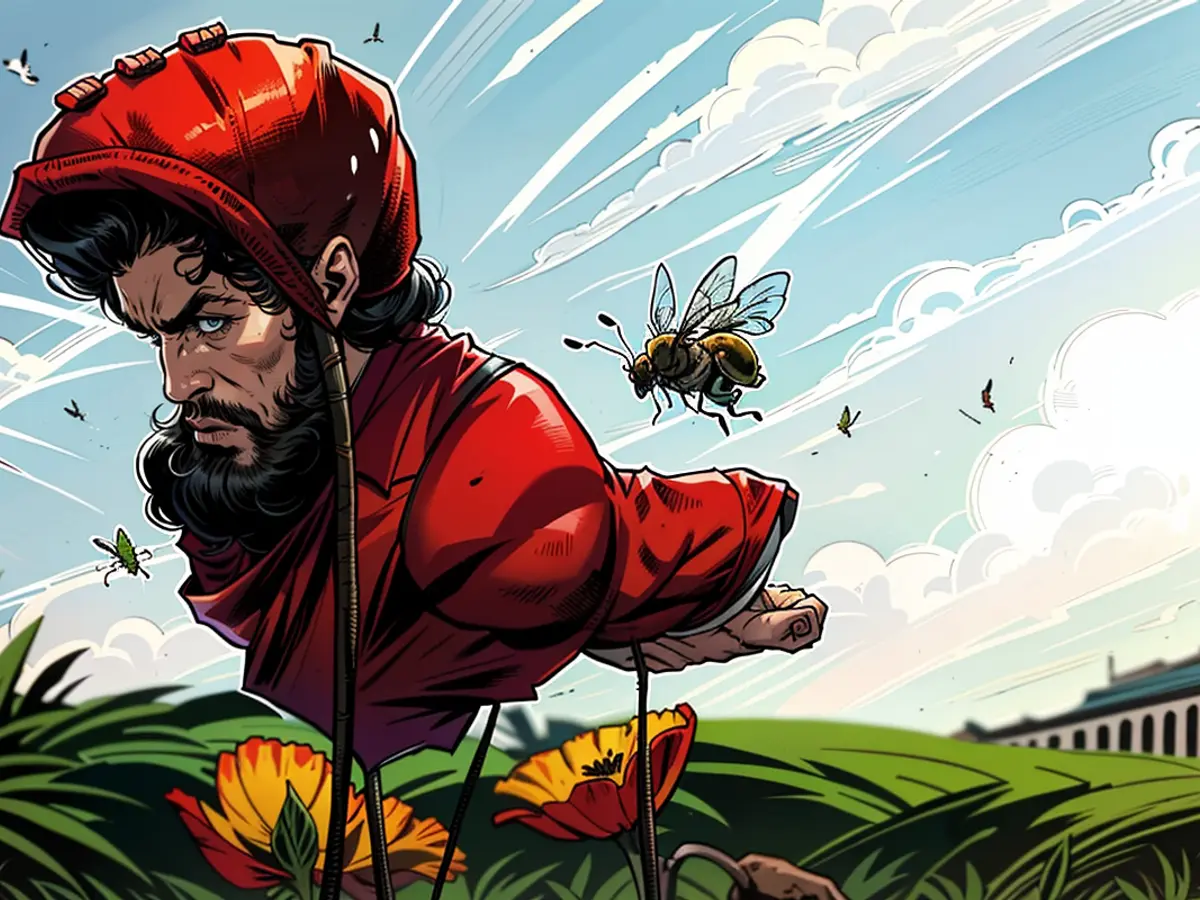Growing numbers of animal and plant species are becoming extinct in Germany.
Creatures like butterflies, bees, and farmland birds are showing a decline in diversity in Germany, as per a study involving over 150 authors. The populations of numerous species are dwindling, as indicated by the "Facts Check Biodiversity" analysis. Over half of Germany's different natural habitats are in poor or insufficient condition ecologically.
This development has significant implications. "Bird populations in agricultural and open lands have decreased by more than half in just 40 years," states the report. The variety of insects has also taken a hit, although certain species, like dragonflies, have shown improvement. Regrettably, many butterfly species have shown negative trends. Nearly a third of all species on the Red Lists are at risk of extinction, either endangered or critically endangered.
Plants are also suffering, particularly field plants, says Alexandra-Maria Klein, a professor of nature conservation and landscape ecology, and one of the study's lead authors. These are wild plants that grow beside cultivated plants on fields or vineyards. "Many of these species are rarely seen anymore," says Klein. Including species like the cornflower and the German fleabane.
On the positive side, there's an increase in non-native plant species, or neophytes. However, the implications for the future remain unclear, says the biologist.
Major Negative Influences from Agriculture
For the analysis, the authors reviewed the state of knowledge on the five primary habitats in Germany - agricultural and open lands, forests, inland waters and wetlands, coastal and marine waters, urban areas. Studies were evaluated, and time series of biological diversity were compiled. The majority of biodiversity data comes from volunteers, according to the authors. Long-term, official observations are rare. The report was funded by the Federal Ministry of Education and Research.
Germany's habitats are categorized into a total of 93 habitat types. The state is particularly concerning for grasslands, natural pastures, moors, moor forests, swamps, and springs.
Additionally, around nine percent of the habitat types on the seabed of the North Sea are destroyed, as stated in the facts check. This includes seagrass meadows on flat sandy grounds and the banks of the European oyster.
Not all Hope is Lost
The report names intensive agriculture with pesticides as the main culprit behind the loss of biological diversity. "Less pesticides are being used," says Klein. However, the substances are now more toxic, according to her. Other negative factors include the removal of hedges in agricultural and open lands, the sealing of urban surfaces, large-scale landscape drainage, particularly in moors and wetlands, climate change, and other related influences.
The authors are not losers at heart. The restoration of biodiversity, the reintroduction of certain species, and the protection of others can all be done and are often possible. For each habitat type, there are methods to promote biodiversity. For example, the harbor seal population in Germany was close to extinction, but now there are over 2000 animals. This demonstrates the power of consistent species protection, says Helge Bruelheide, a geobotany professor.
The quality of flowing waters has also improved significantly due to wastewater treatment since the 1970s, which has a positive impact on the diversity of invertebrates. Invertebrates include dragonflies, beetles, or flies. Christian Wirth, a plant ecologist and the report's chairman, mentions the increased proportion of mixed forests and the increase in dead wood as another positive example. Many forest organisms depend on dead wood.
Politics, Economy, and Society Must Act
Measures to protect biodiversity can include organic farming, expanding protected areas, sustainable fishing methods in coastal waters, and insect-friendly mowing, according to the report.
Politics, the economy, and society all share responsibility for implementation. "A lot is happening on the political level," emphasizes Wirth. There are numerous European Union and German directives designed to protect endangered habitat types and species. However, they often lack coordination or face resistance, particularly from agriculture and forestry.
Lastly, each individual can make a difference in small ways, says Marion Mehring from the Institute for Social-Ecological Research in Frankfurt. For instance, garden owners can design their gardens in a natural manner. "Garden spaces in Germany are roughly the same size as nature reserve areas. This means they can indeed make a significant contribution."
The decline in biodiversity also affects Germany's agricultural and open lands, as bird populations have decreased by over half in the past 40 years. According to the report, Germany's grasslands, natural pastures, moors, moor forests, swamps, and springs are particularly concerning for biodiversity loss.
Agriculture, with the heavy use of pesticides, is identified as the main culprit behind the loss of biodiversity in Germany. However, the report also highlights positive examples like the improvement in the quality of flowing waters due to wastewater treatment since the 1970s, which has positively impacted invertebrate diversity.







